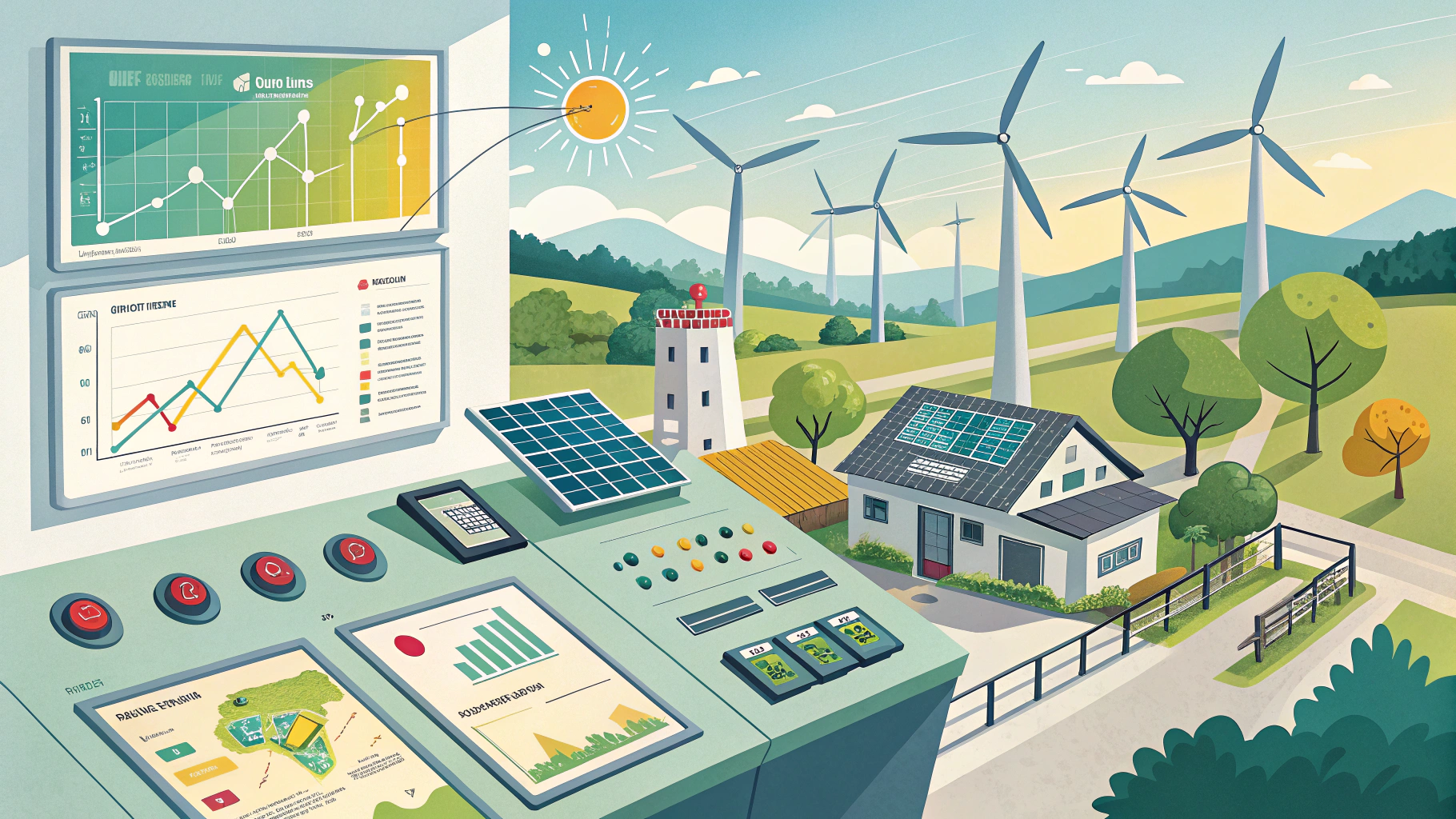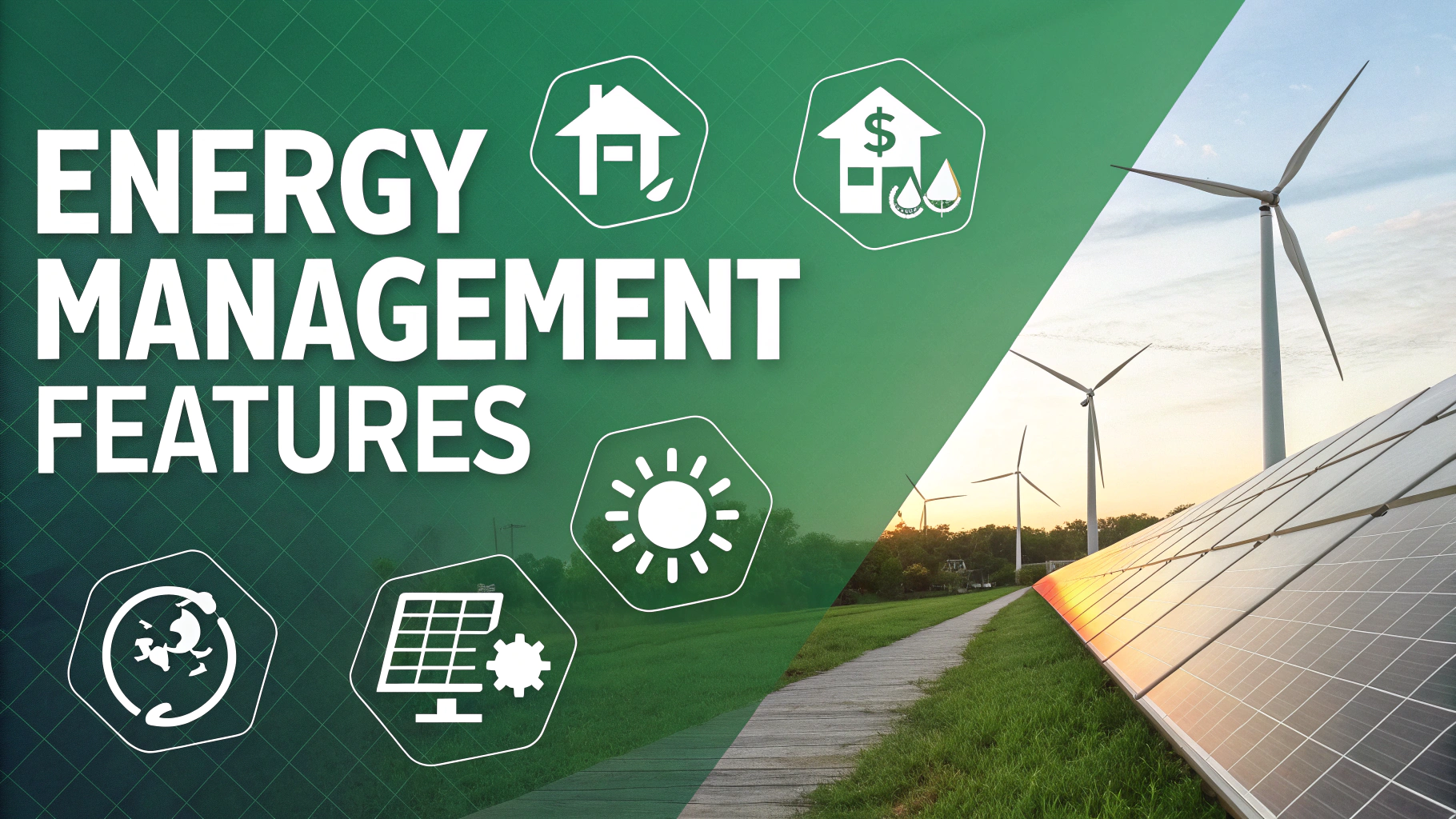Energy Management Features Every Modern HMS Should Offer in 2025
Energy efficiency is no longer just a trend—it’s a strategic necessity for modern hotels. With rising utility costs, increasing demand for sustainable operations, and regulatory pressure to reduce carbon footprints, hotels around the world are turning to their Hotel Management Systems (HMS) for smarter solutions.
In 2025, modern HMS platforms like PAK HMS go beyond reservation management and billing—they now include powerful energy management features that help hoteliers reduce consumption, monitor performance, and operate sustainably without sacrificing guest comfort.
In this blog, we’ll explore the top energy management features that every modern HMS should offer—and how they’re reshaping hotel operations for the better.
🌿 Why Energy Management Matters for Hotels
The average hotel spends 3–6% of its operating budget on energy, and this figure continues to rise due to inflation and increased usage demands. Poor energy management leads to:
- Higher operational costs
- Equipment wear and tear
- Negative environmental impact
- Missed opportunities for incentives or certifications (e.g., LEED, Green Key)
Smart HMS energy tools empower hotels to cut waste, reduce costs, and attract sustainability-conscious travelers—all while complying with local energy regulations.
⚙️ Top Energy Management Features in a Modern HMS
1. Room Occupancy-Based Energy Control
Energy usage should adjust based on guest presence. A modern HMS integrates with motion sensors, door locks, and reservation data to manage:
- Air conditioning/heating: Automatically turned off or set to eco-mode when a room is unoccupied.
- Lighting: Turned off after a certain period of inactivity.
- Curtains and blinds: Automated to reduce heat gain during peak daylight hours.
Why It Matters: Hotels save significantly on heating/cooling costs without manual intervention.
2. Smart Thermostat Integration
HMS platforms like PAK HMS now work with IoT-enabled thermostats that are remotely controllable via:
- Front desk console
- Housekeeping devices
- Guest mobile apps
Key Features:
- Pre-set room temperatures before check-in
- Temperature limits to prevent overuse
- Auto-adjustments based on weather or room type
- Energy-efficient settings for unoccupied rooms or during low seasons
Why It Matters: Thermal automation directly impacts electricity bills and guest comfort.
3. Real-Time Energy Usage Dashboards
Modern HMS should include live energy dashboards displaying:
- Electricity, gas, and water consumption by room, floor, or property
- Peak load times
- Daily/weekly/monthly energy trends
- Estimated utility cost in real time
Users can set alerts for abnormal spikes or inefficiencies.
Why It Matters: Real-time visibility empowers immediate action and long-term planning.
4. Automated Reporting & Benchmarking
An HMS should generate energy reports that include:
- Historical consumption comparisons
- Greenhouse gas (GHG) emissions estimates
- Energy usage per guest night or room type
- Cross-property benchmarking for chains
Why It Matters: Sustainability is a marketing and regulatory advantage.
5. Guest-Controlled Smart Rooms (with Limits)
Allow guests to control lighting, temperature, and curtains via:
- Voice assistants
- Mobile apps
- Smart panels
…but apply smart boundaries to avoid excessive usage.
- AC can’t be set below 20°C or above 26°C
- Lighting turns off automatically after checkout
- Eco-mode default settings for guests not modifying preferences
Why It Matters: Combines personalization with responsible energy usage.
6. Automated Equipment Shutdown
Hotels often forget to turn off non-room equipment like:
- Lobby signage and lighting
- Outdoor landscape lights
- Conference room ACs and projectors
- Spa/hot tub heaters during non-peak hours
Why It Matters: Eliminates “phantom energy drains” and saves thousands annually.
7. Water Management Tools
Water waste is another hidden cost. HMS-integrated tools include:
- Real-time leak detection (e.g., in plumbing, pools)
- Usage tracking for guest showers, kitchens, laundry
- Water temperature monitoring
- Greywater recycling system status
Why It Matters: Conserves water, reduces heating costs, and supports sustainability targets.
8. Preventive Maintenance Alerts
Equipment that’s inefficient often uses more power. HMS dashboards can monitor HVAC and electrical systems and alert staff when:
- Units run longer than usual
- Energy consumption spikes irregularly
- Scheduled filter replacements or tune-ups are due
Why It Matters: Prevents breakdowns and ensures optimal energy efficiency.
9. Solar & Renewable Energy Monitoring
If your property uses solar panels or other renewables, your HMS should:
- Monitor production levels
- Calculate energy offset
- Log storage battery status
- Display net consumption vs. generation
Why It Matters: Demonstrates environmental leadership and supports ROI tracking on green investments.
10. Mobile-Accessible Energy Insights
Hotel owners and managers are often off-site. A modern HMS provides mobile dashboards with:
- Quick-view reports
- Alerts for high usage or leaks
- Access to energy control settings
- AI-suggested optimizations
Why It Matters: Enables immediate, remote response to problems.

🔍 Real-World Example: Boutique Hotel in Karachi
Challenge:
Electricity bills soared during summer months due to 24/7 air conditioning and guest overuse.
Solution via PAK HMS Energy Tools:
- Smart thermostats auto-adjusted AC settings during vacancy
- Guests received “eco tips” via in-room tablets
- Outdoor signage lighting scheduled via dashboard
- Real-time energy dashboard alerted the manager about inefficient AC unit
Results:
- 28% reduction in monthly electricity costs
- 12% increase in guest satisfaction (due to personalized comfort settings)
- Qualification for a local sustainability incentive program
🧠 Bonus Features to Look for in 2025
| Feature | Why It’s Valuable |
|---|---|
| AI-based Energy Forecasting | Predicts future consumption and peak times |
| Utility Integration APIs | Pulls live data from smart meters or utility apps |
| CO2 Offset Calculators | Helps promote eco-initiatives to guests |
| Staff Training Dashboards | Tracks and incentivizes energy-conscious behavior |
| Chain-Wide Rollout Settings | Enables group-wide sustainability campaigns |
📋 Implementation Tips for Hotels
- Conduct an Energy Audit
Use PAK HMS or a partner to evaluate current energy inefficiencies. - Set Clear KPIs
E.g., “Reduce electricity usage per room-night by 15% in 6 months.” - Invest in IoT-Ready Devices
Thermostats, lighting, and sensors should be HMS-compatible. - Train Staff
Make sure your team knows how to read and act on energy dashboards. - Educate Guests
Use in-room displays or check-in messages to promote your sustainability efforts.
✅ Final Thoughts
In 2025, energy management isn’t just a back-office concern—it’s a guest experience, a branding tool, and a financial strategy. Every modern HMS must offer energy-saving capabilities that are intelligent, responsive, and integrated.
By adopting these features through systems like PAK HMS, hotels can:
- Slash utility costs
- Promote sustainability
- Improve operational efficiency
- Increase guest satisfaction
- Future-proof their business



Leave A Comment